
(Photo by Gary Gershoff/Getty Images)
For decades, prolific character actor J.K. Simmons was a familiar face in supporting roles on television and film, showing up for a handful of scenes and stealing every single one of them with his effortless charisma and trademark baritone. His gradual rise to fame has included a number of milestones; HBO’s prison drama Oz, NBC’s Law & Order, the TNT drama The Closer, Sam Raimi’s Spider-Man films, and Jason Reitman’s Oscar-winning Juno all served to showcase Simmons’ versatility, and he made the most of every opportunity. If audiences had some trouble naming the actor early in his career, that all changed when he took home the Best Supporting Actor Oscar in 2014 for his portrayal of ruthless jazz instructor Terence Fletcher in Damien Chazelle’s Whiplash.
Simmons’ relentless work ethic is on display again this week, as he appears in two films opening on Friday: the indie dramedy The Bachelors and the serial killer thriller The Snowman. He spoke with RT on the phone about his Five Favorite Films, noting that these were only five of his favorite films, “because I prefer not to be definitive or rank things.” Fair enough. He also talked about his experiences on Juno and Whiplash, discussed the progression of his career, and told us what he could about his role in the upcoming Justice League. Read on for the full interview.
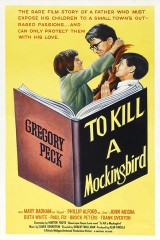
The first two that jump to mind are both from my formative years. One is To Kill a Mockingbird and the other was Guess Who’s Coming to Dinner, both of which are films that I saw at a young age. Obviously To Kill a Mockingbird is, you know, one of the great novels of the 20th century, and a beautiful film adaptation of that that I think did a great job of… I mean, this is from a current perspective, having read the book a couple of times and read the book to my kids and seen the movie. But, at the time — I don’t know how old I was, if I was nine or eleven or twelve — but I was sort of viewing it from the perspective of the kids. The whole story is told from Scout’s perspective and the other kids, and like most kids growing up, I sort of saw Gregory Peck as the film version of my dad in the good guy standing up for what’s right and doing the right thing. Yeah, just a really well-made film with characters that I think are relatable to a really wide range of people, as all great storytelling is, whether it’s a film or a novel, or whatever it is. Something that’s accessible for a variety of ages and demographics and is something that speaks to a lot of people.
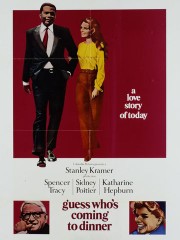
Guess Who’s Coming to Dinner was the first sort of grown-up movie that I remember seeing with my parents, and if I’m not mistaken, I think it was at a drive-in theater, which half your audience doesn’t even know what that is. And that was like an odd movie for the drive-in.
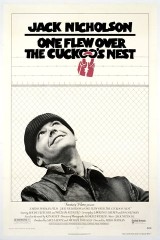
Another all-time favorite would be Cuckoo’s Nest, which was particularly interesting from my perspective because a year or so before the film came out, I had seen the play. I was in college, and I was studying music. I wasn’t into acting or theater or any of that at the time, but a friend of mine was in the play, in a little black box production of the play at the theater department at the University of Montana where I studied music. And I went to see it, and it was, in many ways, an interestingly cast production, but it was brilliant. It was one of the first pieces of theater I saw that had that, you know, that real raw kind of Steppenwolf vibe that really blew me away. So when the movie came out, I kinda felt like, “You know, I don’t think I want to see this movie,” because the play was really so well done. But then I saw the movie, and obviously, [director Milos] Forman and the entire cast, down to people that didn’t even speak on camera, that movie was just so wonderfully done.
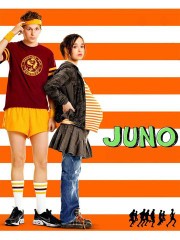
My last two are gonna be Whiplash and Juno, for obvious reasons. [laughs] Juno came along, what is that, 10 years ago now? That came along when I had a nicely established career going and was paying my mortgage and putting my kids through their outrageous L.A. private school. We’d moved out from New York to L.A. two or three years before that, and I’d met Jason. I’d done Jason Reitman’s first feature, Thank You For Smoking, which is also an underrated film, by the way.
Actually, he joined our semi-regular poker game when I was playing it at the time. And he quickly became, from a guy who basically barely knew what beats what in poker, he quickly became one of the best players at the table just because he’s such a smart guy. But we were playing at my friend’s house, and Jason showed up and he just handed me this paper script and he said, “Hey, I’m gonna be working on this,” or, “I just got this,” or something sort of vague, and he said, “You gotta read this. This is so good. It’s by this writer nobody ever heard of.”
That night or the next day, I read the script, and of course immediately fell in love with the part of Juno’s dad, Mac MacGuff. You know, [Reitman] hadn’t said anything to me. He hadn’t said, “Look at this part,” or, “Look at that part.” So, I’m thinking, you know, maybe he wants me to play the drugstore guy in the first scene, or maybe he just wanted to share it with me because we’re pals now. I don’t know. It wasn’t until days later — and I wasn’t gonna say, “Hey, I wanna play this part” — it wasn’t until days later that he said, “Oh, God, of course, J.K. I want you to play the dad. Of course I do.” And he said, “I got the whole movie cast already in my head. I hope we get everybody I want.”
Of course, the people financing the movie wanted him to get some famous pop star to play Juno, and they wanted to get some very well-known actor to play Juno’s dad. There were lists of guys that were way more famous than I was, but they kept throwing at Jason saying, “Look, if you want to get this movie made and get the budget that you want to have, these are the kind of guys that you need to play Juno’s dad.” For both Ellen Page and for me — and really for most of the characters, for Michael Cera, for Allison Janney — you know, these were all the people that he had in mind as soon as he read the script, but he knew he wanted the cast in the movie. He went to bat for all of us, and Ellen and I actually had to do a full on screen test that he set up with film, on actual film, at a sound stage. Jason had us do a couple scenes from the movie to convince the money people that we were the actors that were gonna help make the movie the best it could be.
So that was a really nice vote of confidence from Jason, who, by the way, I just emailed five minutes before you called, because I’m gonna be doing his next movie, The Front Runner, which we start shooting in like less than two weeks.
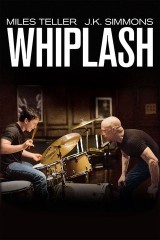
A little Whiplash anecdote is, of course, like everybody else, I had no idea who Damien Chazelle was. Jason Reitman was the one who sent me the script, in an email, for Whiplash. He sent me both the short and the feature script and just said, “Read this,” and obviously it’s from Jason so I’m gonna read it. It was again, obviously, probably one of the most brilliant scripts I had ever read and one of the best fits in terms of the character that I really immediately understood and felt like I could wrap my brain around and pull off.
They said, “The writer-director would love to meet you,” and we set up a lunch, and Damien and I sat down and immediately basically agreed on everything, except he didn’t know that I had a musical background, so he was talking about how we’d have body doubles and we’d have somebody coaching me on how to wave my arms around like a conductor. And I said, “Hey, we don’t need that because actually, that’s one of the arrows I have in my quiver.” That was one of those moments where it felt like kismet, that Damien was like, “Oh, my God.” He said, “When Jason and Helen suggested you for this part, I immediately thought that’s a great idea, but I had no idea that you actually had those kinds of abilities.” And also, he didn’t write the script for me, but he wrote it with Miles Teller in mind from the beginning, and didn’t know that Miles had been playing drums since he was 15 years old.
Ryan Fujitani for Rotten Tomatoes: I want to stick with Whiplash for a second. You’ve been one of the most reliable character actors for decades, and you’re always so good in everything. Just speaking personally, whenever you appear on screen, I almost always wish the scenes were longer. In that sense, seeing you in Whiplash was kind of like wish fulfillment for me, and I’m wondering, did you find it particularity gratifying to win the Oscar and be recognized specifically for a larger performance like that?
J.K. Simmons: Yeah, I mean, it was definitely gratifying to get all that attention that I got from that film and all the awards, culminating in the Oscar. That had never been sort of my raison d’etre as an actor. It was just a very nice, sort of, benefit of having the opportunity to play a brilliantly written role in a brilliantly written and executed movie and have it take off the way it did. And it felt like I was just kind of along for the ride that whole time, and all of a sudden I found myself walking red carpets and making acceptance speeches every other week. Yeah, it was a great ride. I’m glad it happened to me when I was 60, or pushing 60, instead of when I was young.
RT: Why is that?
Simmons: Well, my career arc has obviously been pretty gradual. I did nothing but theater for 20 years and in the first 10 or 12 years of that, I was doing little regional stuff that dozens of people were seeing. And then, when I started doing on camera acting, it was bit parts here and there. I didn’t really start making a comfortable living until, coincidentally, about the time I was grown-up enough to be getting married and having kids, which wasn’t until my early 40s.
I’ve worked with a lot of guys, a lot of young guys, who get a lot of attention. These guys or women who get a lot of attention are just famous when they’re young, and I think it’s an incredibly challenging thing for anybody to deal with. Whether it’s an actor, or an athlete, or a musician, or whatever, people who are such celebrities at such a young age, it kind of alters your perception — or it can alter your perception — of what life is about.
By the time all the attention came my way for Whiplash, I was already grown-up enough to know that it didn’t mean I was the center of the universe. It just meant I’d put in a lot of years doing some solid work, and I’d gotten the part that really drew a lot of attention. It almost felt like it was 75% an award, or awards, for my work in Whiplash and 25% kind of a “lifetime achievement, this guy’s been around a long time, let’s throw him some trophies” kind of award.

(Photo by Daniel McFadden/Sony Pictures Classics)
RT: I’ve read that you said you made a conscious decision to go into screen acting because theater just wasn’t paying the bills at the time. I’m wondering what the first role was that you landed that really felt like it was going to take you somewhere?
Simmons: Well, really, the screen acting transition, it was partly about money, but it was also partly because I’d kind of gotten to the pot of gold at the end of the rainbow for a theater guy, which was doing Broadway and being in long-running Broadway hit shows. Yeah, part of it was that it wasn’t making me rich, but more importantly it was kind of like doing the same show eight times a week, month after month after month. It just got to be tedious at times.
The last Broadway show I did was Laughter on the 23rd Floor, a Neil Simon play, and a lot of the cast was people who did both theater and screen acting, TV and film — Mark Linn-Baker, John Slattery, Nathan Lane. As I got to know them and hear their stories, I thought, “What? I’d like to be one of those guys.” So yeah, once in a while you walk out to the mailbox and get a surprise residual check, which you don’t get for theater, but also, you get opportunities to play different kinds of things and not have to repeat yourself 400+ times a year playing the same character.
RT: Early in your career, you were doing Law & Order at the same time that you were doing Oz, and the two characters you portrayed were like diametric opposites. I’m wondering if you think that that helped to raise your profile — not just the fact that they were two big shows, but that, together, they were sort of able to showcase your versatility.
Simmons: Yeah, the timing of those two different characters was one of the many, many, many fortunate breaks that I look back on and the career that’s gotten me to where I am now. Really, my first sort of big on-camera thing was a guest-starring role on Homicide: Life on the Street, the Tom Fontana show, and it was the first time that Homicide was doing a crossover episode with Law & Order. I had just started auditioning for TV and movies, and I had told my agent, “I’m not gonna do another play. I want to try and make this work for a while.” I had been in a week or two earlier for a nice guest-starring part on Law & Order and they didn’t hire me.
When they were casting this guy on Homicide, Ed Sherin — sweet, wonderful, Ed Sherin who passed away recently, and to whom I owe a lot, based on this one thing — they were talking about casting for this big crossover episode that was gonna get a lot of attention, and he said, “Hey, we just saw this guy his name is Simmons.” He said, “I think he’d be really good in this,” playing this, you know, bad guy, neo-Nazi bastard. And Fontana, he didn’t know who I was, and they talked about it, and they just offered me the part. I didn’t even have to go in and read for it. The next day I was on a train to Baltimore to go shoot this part, and it was a great, great part. It was almost like doing a play, because it was a big interrogation scene with Andre Braugher and Kyle Secor, like a 10-page scene, and it was challenging and beautifully written.
That’s what, within the next year, led to both Oz, and then a few months after Oz started, Law & Order called again and asked me to play the recurring shrink part, which was the perfect complement to playing Vern Schillinger on Oz, because once Oz started, half the calls my agent got were to play the Nazi bastard of the week on some TV show. And I was like, “Look, I know I’m new at this and beggars can’t be choosers,” but I said, “I am not gonna play that character for the rest of my life.” So I passed on all those kinds of parts, and then Law & Order started airing, and, you know, audiences saw this same guy playing the psycho and the psychiatrist, and it really helped me not get typecast for the next decade.

J.K. Simmons in Oz (Photo by HBO)
RT: Clearly, the decision not to go ahead with those other roles was the smart move.
Simmons: Yeah, and honestly, a lot of the time, people talk about, for an actor, all the smart choices of roles that you do, but oftentimes it’s as important, if not more important, the smart choices of the roles that you don’t do. Even when I was doing theater and kind of waiting tables in between gigs and barely paying my rent on my sublet in Hell’s Kitchen, if something just wasn’t interesting or there just didn’t seem like a good fit, like a part that I felt like I could do well, or just not something I liked, I would turn it down. I’d rather wait tables than do something that didn’t feel right.
RT: I think that speaks to your integrity as an artist who wants to express himself, and I think it reflects a certain kind of courage. I mean, you have to have courage to be able to do something like that, right?
Simmons: Well, you have to have courage/foolishness to get into this line of work in the first place, so yeah, I’ll take that as a major compliment.
RT: I’ve heard you describe the difference between a character actor and a “regular actor” is that character actors aren’t that good looking. With Whiplash, I feel like you’ve sort of ascended beyond character actor status. Does it feel like that to you at all? Do you feel sexier these days?
Simmons: [laughs] Oh, I always feel sexy, baby… mostly at home. Yeah, I mean, there are obviously myriad ways in which Whiplash was a career gift, and yeah, one of them is to be seen as — nobody’s gonna ever mistake me for Clooney or Pitt — but you know, to be seen as a guy that can walk into a room and bring some charisma or some intimidation factor, just bring a strong presence into the room. And again, once Whiplash came out, it was like when Oz first started and everybody wanted me to be the Nazi of the week. When Whiplash first came out, three quarters of the scripts were like, “Oh, let’s have him play the charismatic guy that screams at people and belittles them and reduces them to little stinking puddles,” and I thought, “You know, I just got done doing that in one of the best films ever, and that doesn’t mean I want to play that character again.”
I actually consciously looked for characters who were not charismatic, who were part of the woodwork or who were going through difficult journeys or who were not the alpha male, the guy in charge, as I will continue to do. What interests me is doing something different from whatever I’ve been doing recently. So, hopefully, that’ll continue to be the case.
The Bachelors, actually was another one of those. It was a part that I took because the guy was just a guy who, partly because it’s who he is and partly because of the circumstances of his recent life, he’s just a nonpresence. He’s, actually, the one thing he has in common with Whiplash is that he’s a teacher. In this case he’s a classroom math teacher, but he’s the guy that walks into the room and the kids don’t even stop talking. It’s very unlike Terence Fletcher, somewhat in appearance and certainly in character.

J.K. Simmons in Bojack Horseman (Photo by Netflix)
RT: Your versatility extends beyond just the dramatic characters you play, since you’ve shown you have great comic timing as well. But you’ve also done a lot of voice work. You have an extensive, impressive resume of animated stuff, which makes sense because you have such a distinctive voice. How did you come to be so involved in that side of the industry?
Simmons: Well, I actually first started getting a little voiceover work when I was doing Guys and Dolls on Broadway. It was 1992 and we were a gigantic, ridiculous hit. It was a beautiful, great, great, great, production directed by Jerry Zaks. And everybody in the cast was getting a lot of attention from agents. “Oh, we want to send you out for this or that,” booking mostly commercials. Half the commercials you see are Broadway actors cashing in a paycheck.
So I got a lot of commercial agents who called and wanted to send me out, and I had sort of tried commercials off and on and I wasn’t drawn to it, and I didn’t feel like I was good at it. But I kept asking to speak to their voiceover people, because I said I’d love to try voiceovers, and most of them the response was exactly that. Most of them said, “Well, sure. So would everybody else in show business.” Voiceover is a pretty tight market, especially in New York. There’s like a handful of guys that are getting most of the work. But my dear pal Jeb Bernstein at Paradigm was just starting a new voiceover department and he said, “Sure, yeah, I’ll start sending you out for voiceovers.” I did a few auditions, I got a couple of small, little radio spots, and within, I don’t know, a year or two or something, I ended up getting hired as the Yellow M&M. That’s a job that has been going for well over 20 years, now and helping to pay the mortgage.
RT: Wow, has it really been that long already?
Simmons: Oh, yeah. Billy West as Red and myself as Yellow, it’s gotta be over 20 years now. Yeah, crazy. And I just thought it’d be really fun kind of work to do and it’s, you know, it’s a painless kind of work to do, because in my case, I just ride my bike over there and it doesn’t matter if I’m a sweaty mess or I’m not dressed well. You just go into your little booth and do your little thing.
So, the rest of the time that we were living in New York, I had some nice commercial voiceover stuff going on, and then once we moved to L.A. where more of the animated work is, I started getting more of those opportunities. And then, of course, as you become more recognizable as an on-camera presence, then people start throwing cartoon work your way, whether you’re good at it or not, so a lot of it is just for that reason. I mean, it gets harder and harder to schedule little quirky, animated things, but I still do those little kinds of things once in a while, just mostly for fun, or because it’s something I think my kids will be into.
RT: You’ve got a pretty high-profile release coming up in Justice League, and Commissioner Gordon is a pretty important character in the Batman world. Is there anything that you might be able to tell us about his relationship to Batman in the film, particularly considering those workout photos of you that surfaced some time ago?
Simmons: Yeah, no. That was just interesting timing, but the internet got kind of carried away with it. I was just working out with my buddy, Aaron Williamson, who was a pal that I train with sometimes. And he said, “Hey, let me take some pictures and put them up on my Instagram.” And a couple months later, you know, they were all over the internet. But no, that actually had nothing to do with Commissioner Gordon.
I had recently gotten very, very thin for a movie called I’m Not Here, which is about to premier at Raindance Film Festival in a couple of weeks. And I was just sort of in the process of like, “Let’s look somewhat emaciated without going crazy.” And so I was just back in the gym with Aaron a few weeks after that, just trying to build back some muscle, and yeah, those pictures just took off.
You’re not gonna be seeing the bulging biceps on Commissioner Gordon, at least in the first Justice League movie. You’re not gonna see much of Commissioner Gordon, actually. It’s just kind of a “Let’s introduce, or reintroduce, this character with a new actor playing him.” Obviously, he’s been played by a lot of really wonderful actors. It was an intimidating character to step into, but yeah, don’t blink during Justice League or you’ll miss my Commissioner Gordon.
The Bachelors opens in limited release and The Snowman opens in wide release this Friday, October 20.